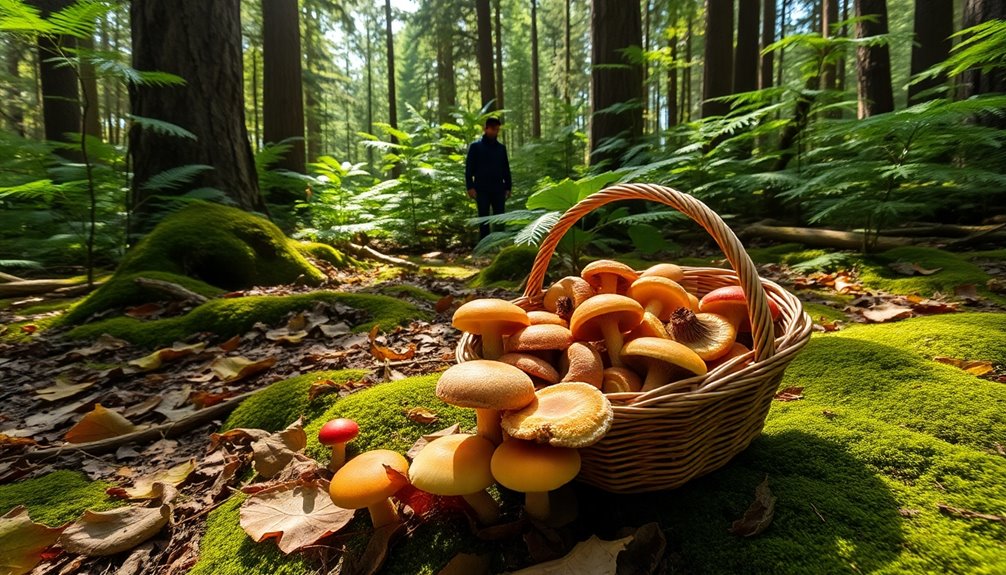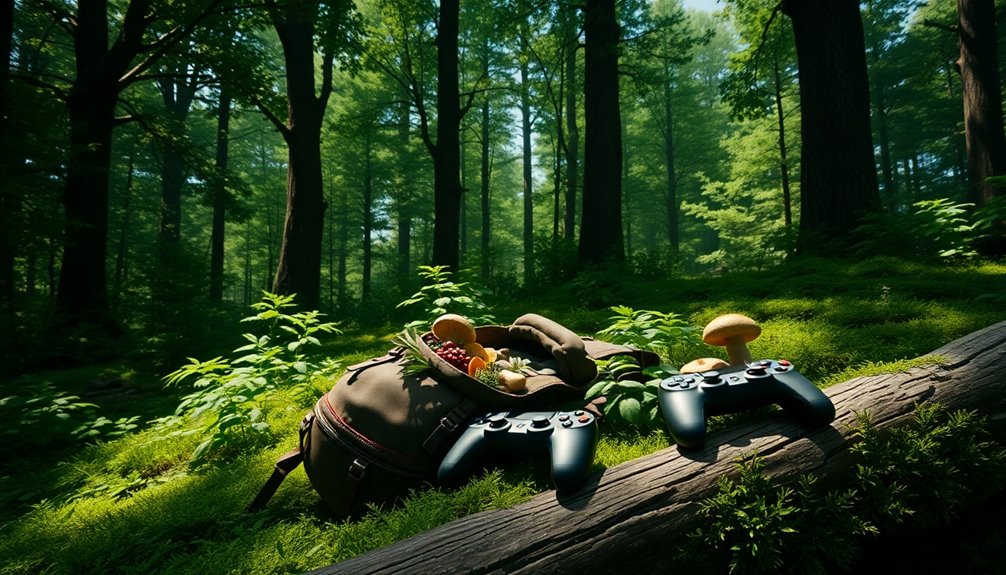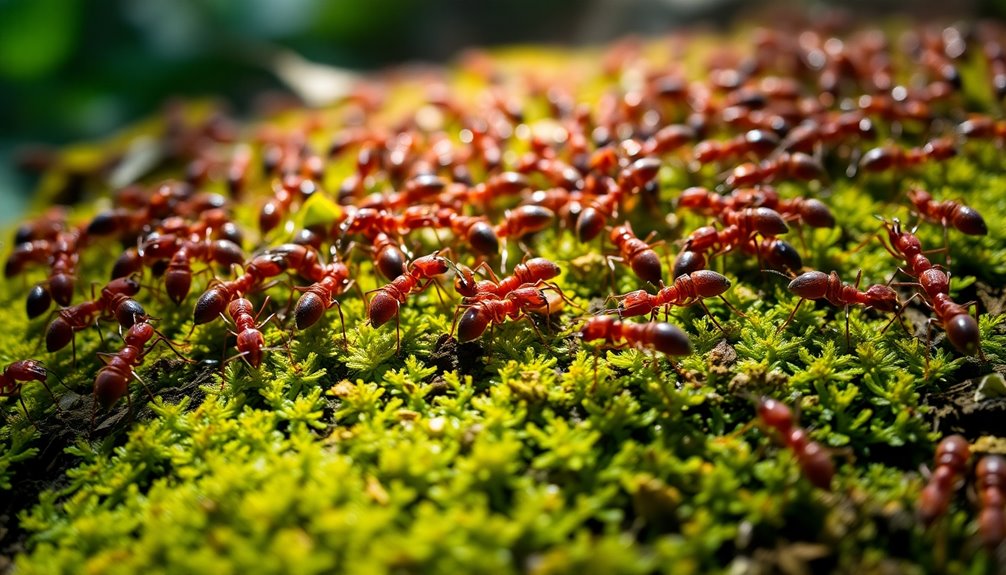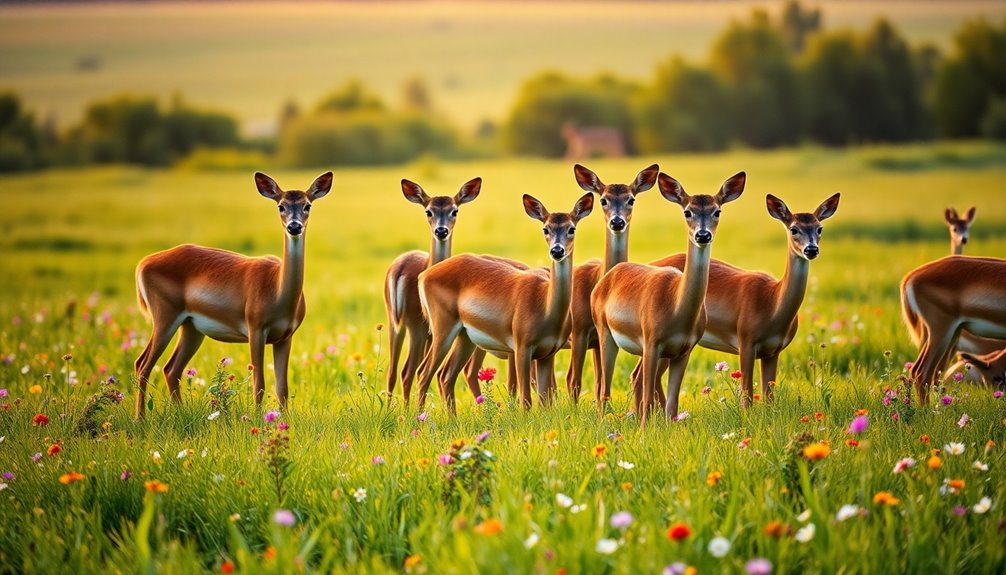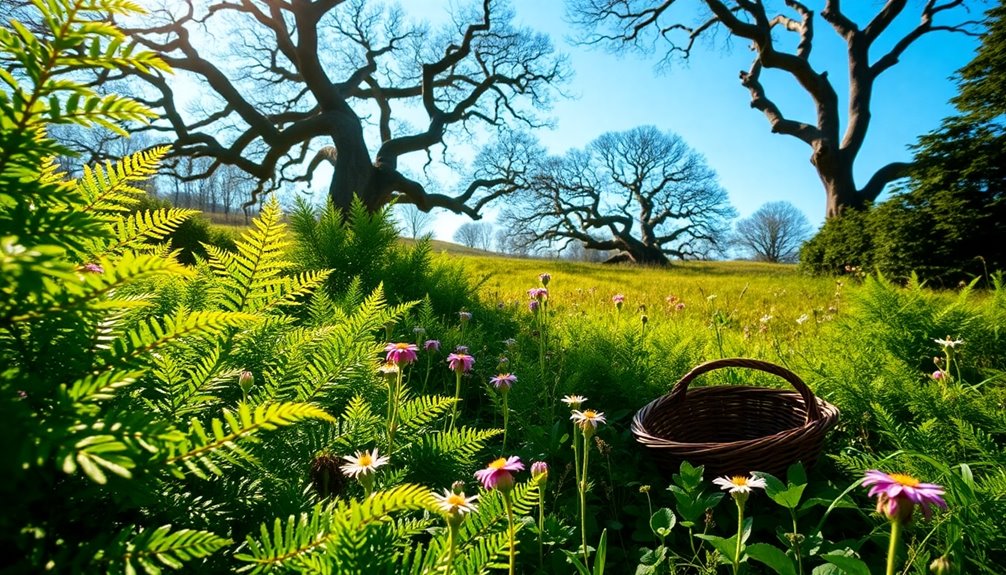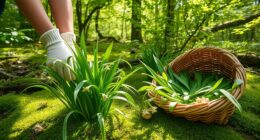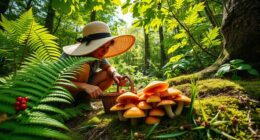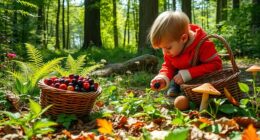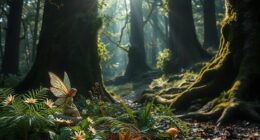Mushroom foraging isn't necessarily illegal, but it can lead to legal issues if you're unaware of the regulations in your area. Many states and municipalities have strict rules, with some outright banning foraging in parks or on public lands without permits. Overharvesting can also harm local ecosystems, putting species at risk. Plus, ethical foragers should be cautious not to harm the environment or disrupt habitats. It's essential to know what's allowed where you are. Want to uncover more about the ins and outs of foraging? Keep exploring the fascinating world of mushroom hunting!
Key Takeaways
- Foraging regulations vary significantly by location; some states, like Arkansas and California, impose strict bans on mushroom foraging.
- New York City has a complete ban on foraging in city parks, reinforcing the importance of knowing local laws.
- The National Park Service generally prohibits plant removal, though limited foraging may be allowed with permits on certain public lands.
- Ethical foraging practices are crucial to prevent ecological harm, such as overharvesting and disruption of local ecosystems.
- Accurate mushroom identification is essential due to toxic look-alikes, making expert consultation and knowledge vital for safe foraging.
Understanding Foraging Regulations
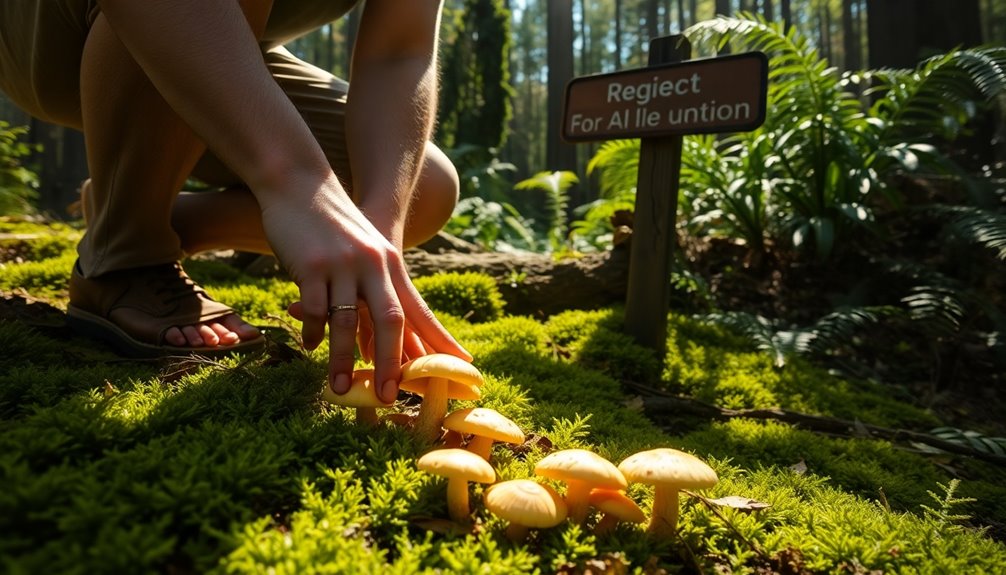
When you venture into foraging, it's important to understand that regulations can vary widely depending on where you are.
For example, states like Arkansas and California impose strict bans on foraging in state-owned lands, while Alaska and Hawaii generally permit it. If you're a mushroom forager in New York City, be aware that there's a complete ban on foraging in city parks, and you could face fines for picking common plants.
When it comes to National Parks, the National Park Service prohibits the removal or disturbance of plants under 36 C.F.R. § 2.1, but park superintendents might allow limited foraging under specific conditions.
If you're interested in collecting mushrooms on public lands, you'll often need a permit, especially in national forests, where it's illegal to collect without one.
Many visitors learn about these foraging regulations only after breaking them, which can discourage people from enjoying the natural areas.
So before you head out with your basket, make sure you know the local laws and guidelines to guarantee a responsible and enjoyable foraging experience.
Mushroom identification skills are just as vital—knowing what to pick can save you from legal troubles.
Environmental Impact of Foraging

Although foraging can be a rewarding way to connect with nature, it's essential to reflect on its environmental impact.
Mushroom foraging, while enjoyable, can lead to ecological imbalances if done irresponsibly. Overharvesting mushrooms threatens local mycorrhizal species, disrupting the delicate balance of natural ecosystems. If you pick excessively, you might negatively affect spore dispersal and regeneration, ultimately harming wild populations.
To guarantee sustainability, you should adopt responsible foraging practices that respect the environment. Awareness of the ecological consequences of your actions is critical; when foraging is done thoughtfully, it can support biodiversity and enhance ecosystem health.
Studies have shown that some areas experience ecological decline due to excessive foraging activities, reinforcing the need for mindful approaches.
Proper regulations and public education on sustainable foraging can help protect vulnerable ecosystems while allowing you to enjoy the bounty of wild food resources.
By being conscious of your foraging habits and prioritizing environmental health, you can contribute positively to the ecosystems you cherish.
Ethical Considerations in Foraging

Ethical considerations in foraging require you to think critically about the impact of your actions on the environment and local ecosystems. As a mushroom hunter, you need to practice ethical foraging by minimizing disruption to habitats.
Picking mushrooms for personal use can be rewarding, but it's vital to grasp the ecological balance. Leaving some mushrooms intact supports spore dispersal and maintains populations.
Many advocates suggest photographing wild mushrooms instead of picking them. This approach fosters appreciation for the species without harming their numbers.
It's important to reflect on community perceptions too; other nature enthusiasts also enjoy these spaces, and your actions affect their experience.
Responsible foraging involves exercising personal judgment. You'll need to balance your enjoyment of foraging with the need to protect ecological integrity.
Excessive picking can lead to species decline and disrupt local ecosystems, which negatively impacts wildlife. By understanding the broader ecological context, you can make informed choices that support the sustainability of the environment.
Ultimately, ethical foraging means respecting nature and ensuring that wild mushrooms continue to thrive for future generations.
Identification Challenges for Foragers
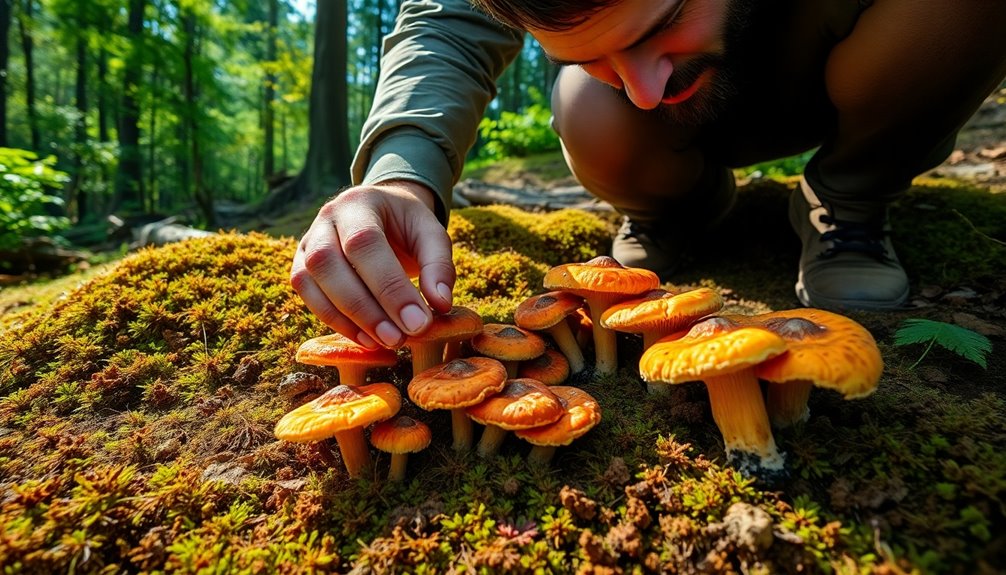
Mushroom foraging presents unique identification challenges that require keen observation and critical thinking. When you're out mushroom hunting, you'll quickly realize that many edible mushrooms have toxic look-alikes. This makes accurate identification vital, as consuming the wrong species can lead to severe health risks.
One common method for identifying mushrooms is spore printing, which entails picking specimens. However, this can damage the mushrooms and hinder your ability to assess their characteristics. Non-destructive techniques, like using mirrors, may not provide enough detail, complicating your efforts even further.
Foraging for food can be rewarding, but it demands extensive knowledge and experience. It's important to consult experts or reliable resources before consuming any wild mushrooms.
Responsible foragers should also minimize their impact on the environment while gathering necessary data, emphasizing the significance of careful identification methods to maintain ecological balance.
Cultural Perspectives on Foraging
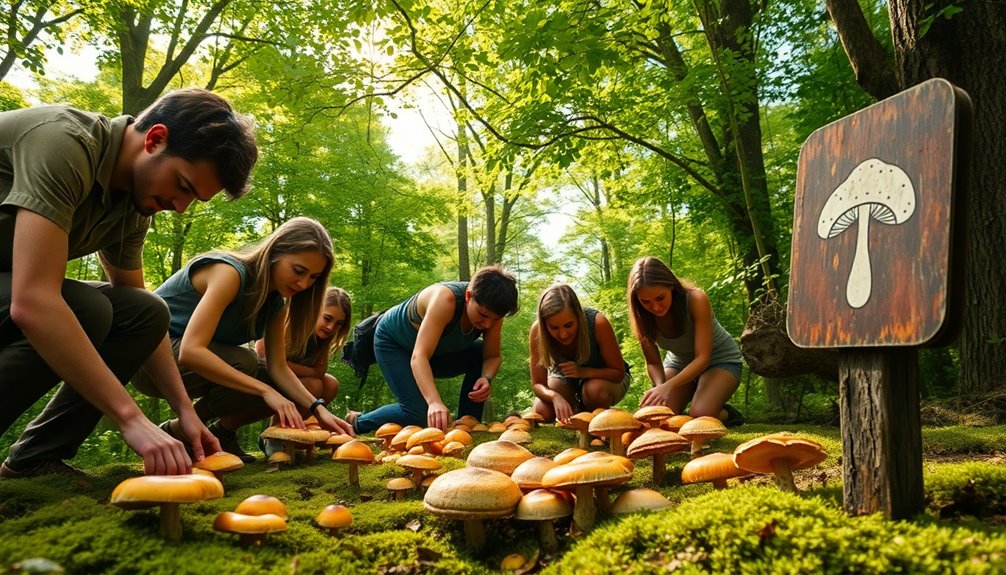
Foraging's cultural significance varies widely across the globe, reflecting diverse traditions and beliefs about nature's bounty. In many rural communities, mushroom hunting isn't just about gathering food; it's a cherished practice steeped in history. This practice often serves as a rite of passage, strengthening bonds among family members.
However, urban foraging trends can sometimes neglect this rich cultural backdrop.
Here are some key cultural perspectives on foraging:
- Tradition: In rural areas, foraging for mushrooms is a time-honored tradition passed down through generations.
- Community Bonding: Many communities view mushroom hunting as a communal activity, fostering connections and shared experiences.
- Regulations: Some regions impose strict regulations to protect local ecosystems, reflecting modern conservation concerns.
- Cultural Rights: In certain cultures, foraging is seen as an inherent right, while others emphasize adherence to legal frameworks.
Understanding these diverse cultural perspectives can enhance your appreciation for foraging and its role in local communities.
Frequently Asked Questions
Is Mushroom Foraging Illegal?
Mushroom foraging isn't inherently illegal, but it depends on where you are.
You need to check local laws since some areas require permits or have specific regulations. In national parks, for example, foraging is usually prohibited, and you could face fines.
While some states are more lenient, others impose strict bans. Always stay informed about the rules in your area to avoid any legal trouble while enjoying your foraging adventures.
What Are the Ethics of Mushroom Foraging?
When you think about the ethics of mushroom foraging, consider conservation and community.
Cultivating a connection with nature means you should respect ecosystems. Choose to photograph rather than pick, appreciating the beauty without disrupting biodiversity.
Remember, responsible foraging requires personal judgment; it's about balancing enjoyment and environmental impact.
What Are the Rules for Mushroom Foraging?
When you're foraging for mushrooms, you need to know the rules in your area.
Different places have different regulations; some state parks ban foraging entirely, while others allow it. National parks generally prohibit any plant removal unless permitted.
If you're in a national forest, personal collection might be allowed without a permit, but check for daily limits.
Always research local laws to avoid fines and make sure you're foraging responsibly.
What Is the Saying About Mushroom Forager?
The saying goes, "There are old mushroom hunters and bold mushroom hunters, but there are no old bold mushroom hunters."
This highlights the importance of caution and knowledge in mushroom foraging. If you're out in the woods, you need to be careful and know what you're picking.
Mistakes can lead to serious health risks, so take your time, learn from experienced foragers, and always respect nature while you hunt for those tasty fungi.
Conclusion
So, next time you're out in the woods, remember that mushroom foraging isn't just about filling your basket; it's a dance with nature's rules. While you might feel like a 21st-century Robin Hood, it's essential to respect local laws and the environment. Be mindful, educate yourself on what you pick, and embrace the rich cultural history behind foraging. With the right approach, you can enjoy this ancient practice while keeping our ecosystems thriving!

